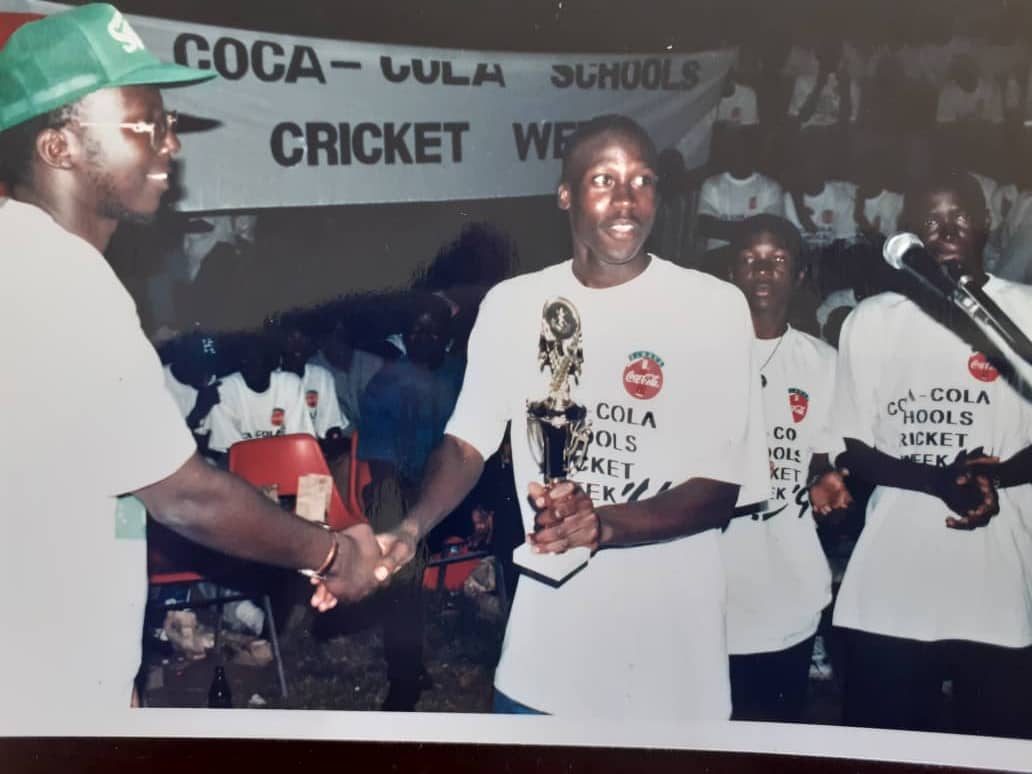By Denis Musali
It is impossible to mention the best cricketers to ever set foot on a cricket oval in Uganda and not have the name Guy Kimbowa Lutaaya in your top three. A gifted all-rounder Guy comes from a family of cricket royalty, his father a cricket icon A.K Lutaaya was a cricketer in his days and a pioneer member of Africa Cricket Club, his siblings Marco Lutaaya was a terrific cricketer in his high school days for Makerere College while his sister Belinda Nakiganda Lutaaya was the 1st captain of the Lady Cricket Cranes. Like all great players, Guy was a man of high standards working hard at his game as a junior to ensure his body could sustain the workload that required him to bat in the middle and also contribute with the ball. Guy was blessed with a great understanding of the game at an early age and the ability to lead teams. He captained his beloved Busoga College Mwiri to three schools cricket week titles, JACC, Wanderers, and the junior cricket cranes. However, his innings were was cut short by life like most players in that generation, joining the corporate world took him away from his 1st love but in his own words cricketers only retire from playing but never from cricket. In his 1st interview since retiring from the game, Guy relives all the good times from Mwiri, to his time at Plascon Academy and some memorable times with the Cricket Cranes.
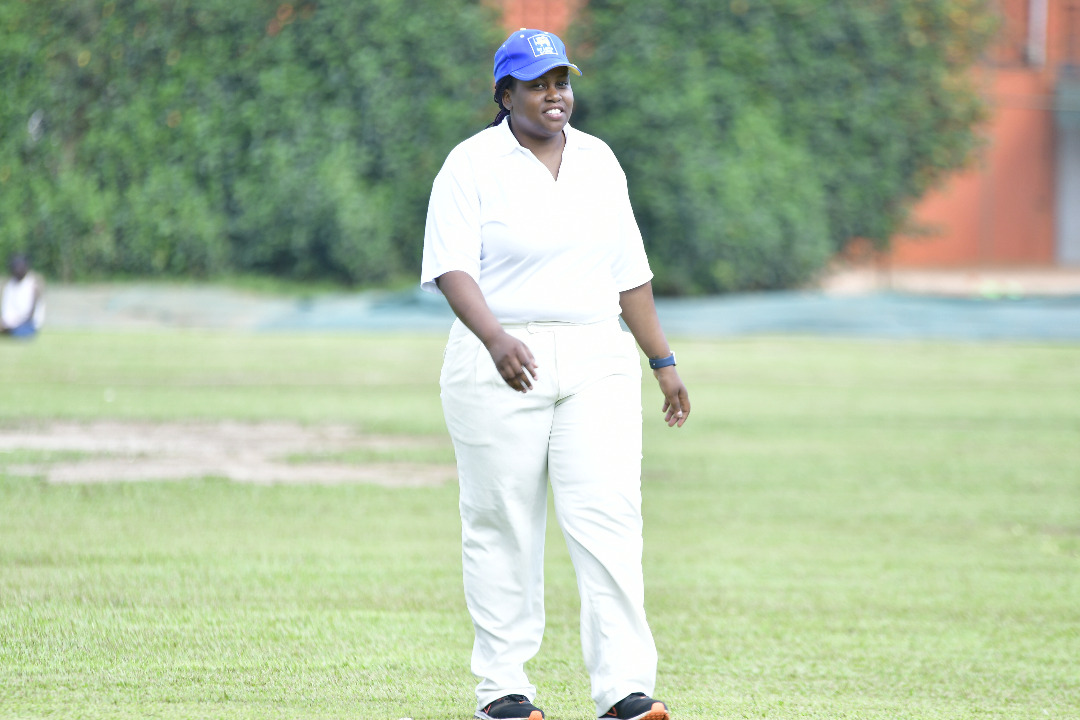
Qn; How did you get involved in Cricket?
Ans; Coming from a sporting family, and most especially from a cricketing family; didn’t really have a choice. My father would take us to the cricket ground every Sunday from a very young age and the interest in the game started from there. While the elders were playing, we would also have throw-downs and catching practice on the side; and gradually picked up the rules of the game from a very young age.
Qn; You come from a cricketing family your sister Belinda Lutaaya played for the Gayaza and the lady cricket cranes while your brother Marco Lutaaya was a competent cricketer for Makerere College School, how much did the family influence for you to play cricket?
Ans; Cricket really ran through our family blood given my Father who is a cricketer himself [in cricket you never retire being a cricketer, you only retire from playing cricket]. My younger brother Marco was a very competent cricketer like you mentioned – playing in Mwiri before he transferred to Makerere College School, where he continued playing. My sister Belinda also played cricket for Gayaza High School – my Father used to send me to go coach her and the team at Gayaza, and then all the way to the Lady Cranes. My mother was also very supportive of us playing cricket and I never once heard her concerned that our playing cricket was interfering in our academics/studies – which helped a great deal and she instead encouraged us to continue playing cricket. Also, back in the day when we played cricket – we never used to have any funding or sponsorship from the ICC to go for tournaments where you are representing your country. So we used to do ‘crowdfunding’ but in UG style; and for me, my parents would fork out cash that would pay for the air tickets and accommodation whenever we toured.
Qn; Mwiri in your days, had a lot of talent. Tell us about playing cricket in Mwiri and making the cut out of a very big crop of talented players.
Ans; When I joined Mwiri in Senior One – I had two particular sports that I was passionate about; Tennis and Cricket. Since we only had one Tennis court in Mwiri, it was impossible for a Senior One to get any playing time on the court. Right opposite the court was the Cricket pitch, which also doubled as the Soccer pitch. It also helped that in the same Senior One intake that year, was Simon Muyobo – so through his big brother Mark Muyobo [who was in Senior Four], we could easily access the Cricket field, with the Seniors accommodating us.
Mwiri was already a cricket-mad school but what invoked the revolution that ended up ensuring that we had a huge crop of talented players, was Justine Ligyalingi. While teaching at Mwiri, Justine attended an ICC coaching course in India and when he came back, that’s when the standard of cricket at Mwiri tipped to greatness and the evolution of Mwiri as a cricket powerhouse. He made us fitter and upped our fielding tremendously – which allowed us to easily express our overall cricket talent. When we started winning consistently then everyone in the school started taking notice and wanted to play or get involved in the game. So you can imagine making the cut in the first team, out of a talent pool that could easily form 4 separate competitive teams – your talent and the skills you bring to the game have to stand out.
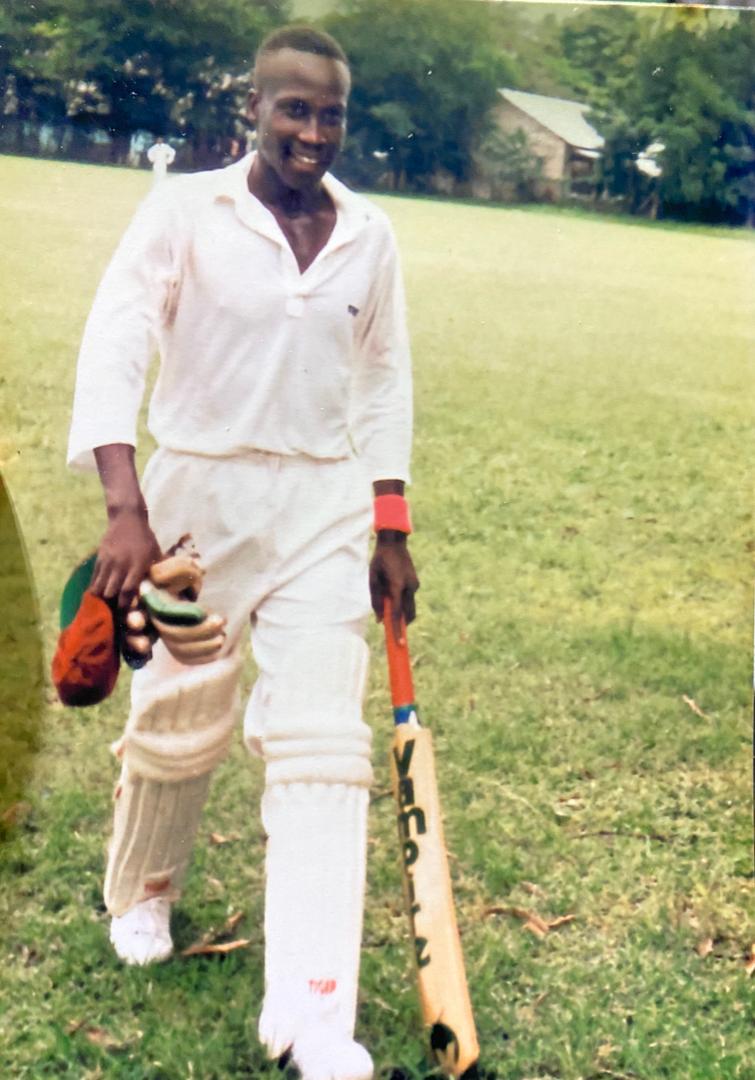
Qn; Those that came after you in Mwiri were told stories of how your boundaries over the weekend left lines visible on Monday morning as kids went for assembly. Any truth in this?
Ans; Hahahaha! Apart from me captaining Mwiri for three years as National school cricket champions in each of those three years, my legend at the hill grew as a result of what I was told were superhuman performances in the Inter-house cricket competitions – playing for my house Willis. In my Senior four, I scored 202 runs [in a 25-over game] against President’s house. I then opened the bowling and took a 6-fer. I remember the story on the hill was that I was on drugs to be able to put in such a performance.
In my Senior Five against Nabikamba house, I scored 225* [again in a 25-over game]. I recall for the first double century, Justine Ligyalingi was not around but he was told but he couldn’t believe it]. For the second one he was around so he watched the innings, so were my cricket peers who were in Senior Six at that time. An interesting story about that innings is that Simon Nsubuga, who was in charge of the ground for that match – extended the boundary ropes until almost at the Mess hall, he knew that they would be carnage so he wanted to restrict my boundary hitting opportunities. Clearly that didn’t work no matter where the boundary ropes were put – I think those are the folk stories that you heard.
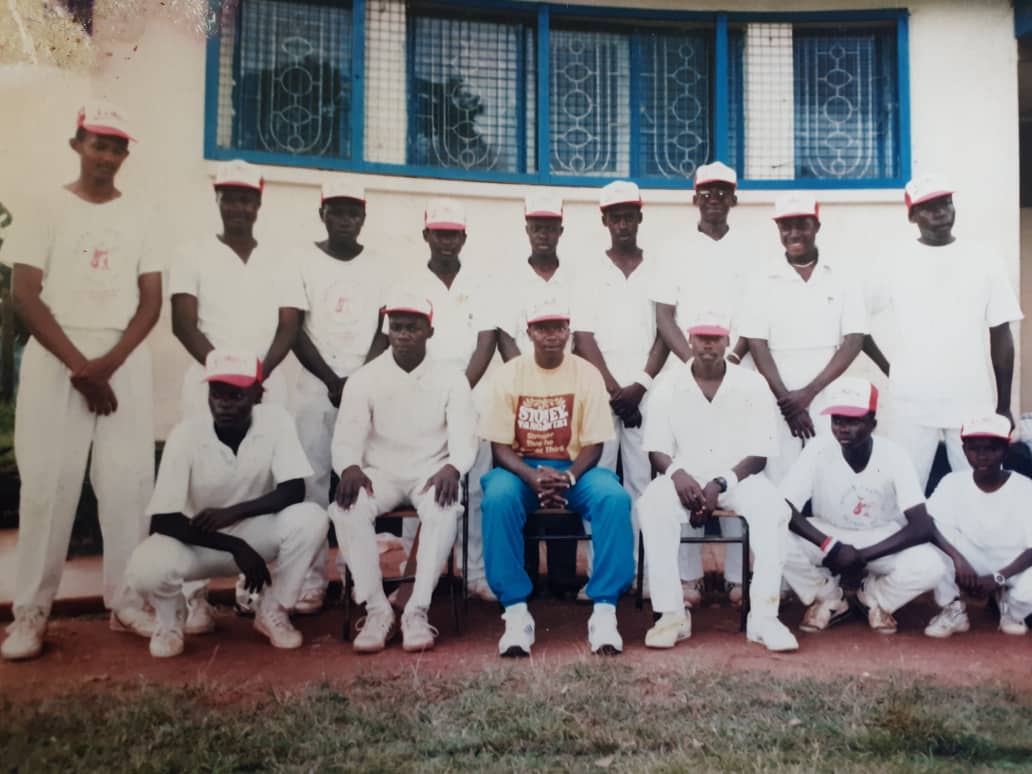
Qn; After taking up the game seriously in Mwiri, what opportunities came your way to advance your cricket career?
Ans; The first opportunity came when I was 17 years old when I was selected on the East & Central Africa Under-19 team that participated in the International Youth Cricket Tournament in Malaysia - which also featured Bangladesh, Denmark, Hong Kong, Malaysia, Papua New Guinea, and Sri Lanka. I was in Senior Four and had to leave Mwiri in the middle of the school term to go play in this tournament. Very good experience for a young cricketer and I recall batting very well in that tournament against Papua New Guinea [was run out while batting very well], Bangladesh and Denmark. The next opportunity came 18 months later when I attended the Zimbabwe Cricket Academy at the Harare Sports Club grounds, which was being run by Stephen Mangongo [who went on to become the Head coach of the Zimbabwe national cricket team]. While there, I had the opportunity to play domestic league cricket for the Takashinga Cricket club. I recall paying a league game for them in Bulawayo where I batted pretty well. While at the Academy, I also obtained a Level 1 coaching certificate. Probably the biggest opportunity came when I was in my Senior Six vacation before I joined Makerere University for my undergraduate studies – when I attended the prestigious South African National Plascon Cricket Academy, under the directorship of Clive Rice. It was a six-month development program where the best young cricketers are taught a wide variety of skills to enhance their playing abilities, as well as a range of other skills, including public speaking, dealing with the media, and the psychology of being a winner. My roommates were Henry Olonga [Zimbabwe], Thomas Odoyo [Kenya], and Loots Bosman [who ended up playing ODI and T20 cricket for South Africa]. The highlight is when we played against the South African national team and their Captain then Hansie Cronje skied a ball towards the boundary I was patrolling at deep mid-wicket – the crowd was shouting for me not to catch him but unfortunately, he had to walk back to the pavilion.
Qn; Share with us some of the most talented lads you have shared a dressing room with both in Mwiri and for the national team.
Ans; In Mwiri they were lots but those I played with the most that I rate highly, in no particular order, were: Simon Muyobo; Benjamin Musoke; Henry Simbwa; Ibrah Lule; Simon Nsubuga; Joseph Mwambala; Michael Ndiko; Junior Kwebiha; Maima Wapakhabulo; Abdul Ali
In the Uganda National team, again in no particular order, were: Nehal Bibodi; John Lubia; Tendo Mbazzi; Paul Nsibuka Luswata; Frank ‘Franco’ Nsubuga; Richard Sempa; Joel Olweny
Qn; Mwiri was a force in school’s cricket in those days, which schools ran you guys close during cricket week? Plus opposition players who gave you a tough time.
Ans; During my time in the school’s cricket week, everyone used to look forward to the Mwiri vs Budo clash; it was the school that used to run us close in the earlier years. I still vividly remember the 1992 game against Budo at the Makerere University Cricket ground. We had what we thought was a competitive team but Budo knocked us out of the tournament. They had the likes of Tendo Mbazzi, James Habyarimana, David Meya, Mark Bitarabeho, and David Mulira.
In the later years, we were just too dominant and no school even came close. There’s even a time when Mwiri used to field two teams in the School’s cricket week and both teams meet in the finals.
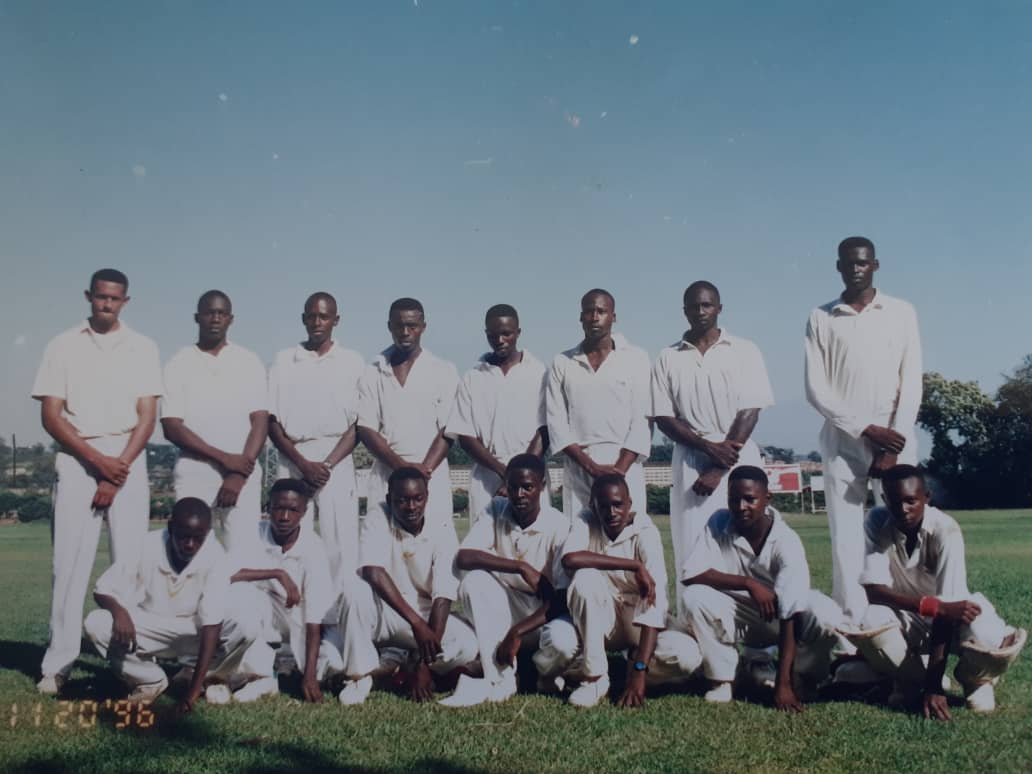
Qn; Who influenced you to continue playing cricket up to the highest level?
Ans; My father being a cricketer himself, greatly influenced my cricket growing up – with my mother also being my cheerleader and supporter. One of the best things my father did for me on my cricket journey was to introduce the late James Shikuku to me at a very young age. Since James was playing for Africa Cricket Club (ACC), which also the club my father belonged to – he took interest in my cricket abilities at a very young age and he showed me the ropes of the game. I recall being terrified when he took me to the nets at Lugogo to have a bat for the very first time.
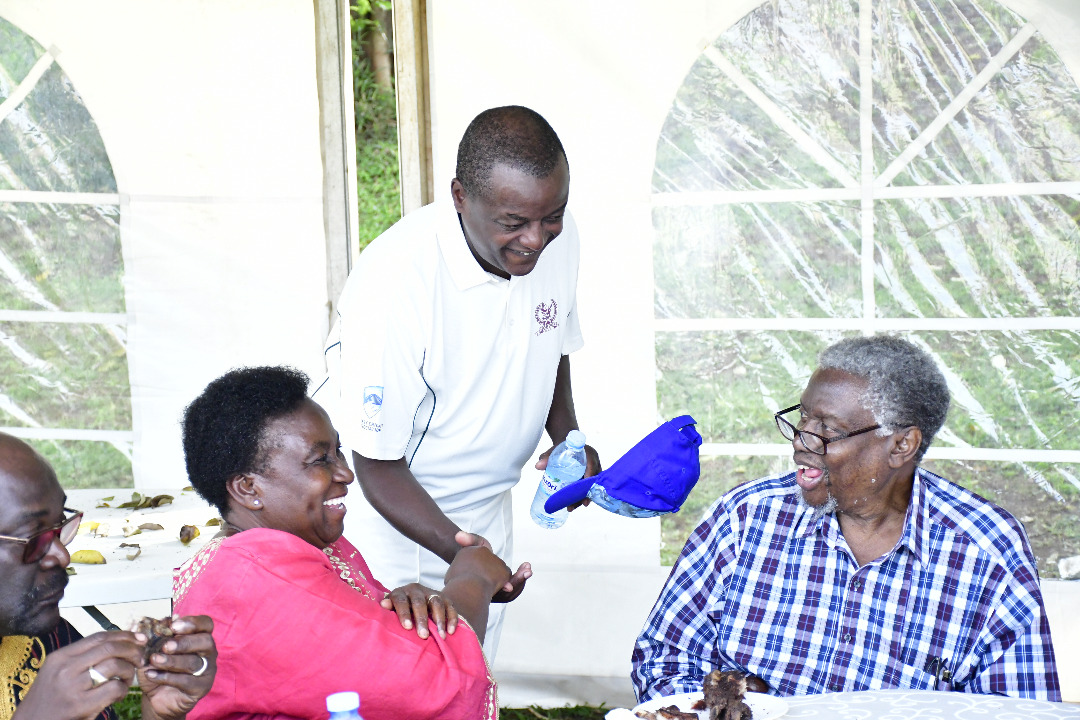
In Mwiri, Justine Ligyalingi was a great influence on my cricket playing progression to the highest level. Justine also was a great believer in my leadership skills as he made me Captain of the Mwiri school team when I was just in my Senior Four – which trust I returned by leading Mwiri to win 3 straight National Schools Cricket championships as captain
I cannot also underestimate the impact Mr. Pithy Ndiko had – not just on me but the entire young cricketers who were based in the Jinja area schools. He ensured that the best had the opportunity to play in the domestic cricket league under Jinja Association of Cricket Clubs (JACC) – which gave us exposure at a young age, playing with the experienced and top players in the country. So every Sunday morning I would leave Mwiri on the school truck to go play League cricket for JACC and later on he allowed me to Captain the club. He also organized for us tours to Kenya and Tanzania – for us to play against our peers in those countries to be able to improve our skills with much better opposition.
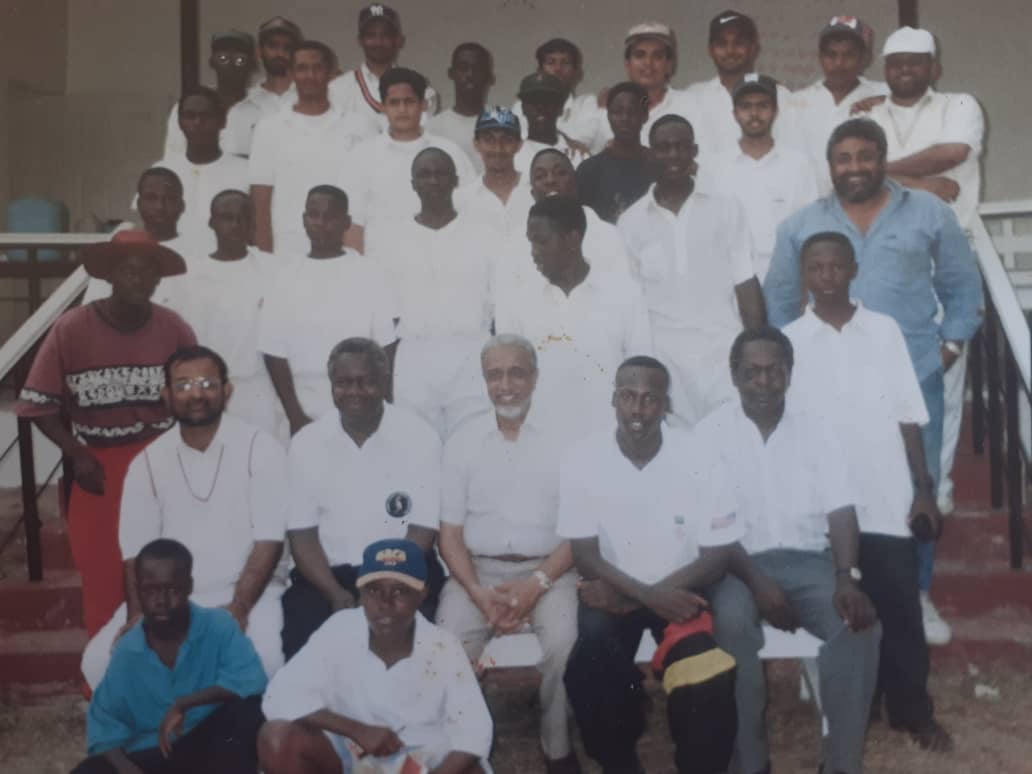
After Mwiri, I played for and later captained Wanderers Cricket Club – under the guidance of Mr. Sam Walusimbi, who also had a great influence on my cricket playing days. The one most valuable lesson I learned from him was temperament while batting and how to build/compile an innings. I actually watched him do that when played together, where he won us games coming in the late middle-order, so it was a practical lesson rather than theory.
On the Uganda National Team, it was Mr. William Kamanyi. As a batting all-rounder in the team, I used to bat in the top 4 and either open the bowling or first change, there was a lot of emphasis and support from him that I was extremely fit – due to the workload that I had in the team. So in training, he will really work me pretty good and I saw that pay off in match situations.
Qn; When did you make your debut for the national team and what was the feeling?
Ans; I made my debut for the Uganda national team in 1993/94 at Lugogo cricket oval. Interestingly, I wasn’t supposed to play in that game – I was the 12th man. Unfortunately, or later, fortunately; one of the players supposed to play turned up late for the game – while I had turned up 90 minutes before the game, with my kit bag in tow. While as a team we were doing our warm-up drills, it was getting dangerously close to tossing time; and by that time the captain should have submitted the list of the playing XI to the Umpires. I was then told by the captain, Paul Nsibuka Luswata, that I was playing. I recall we fielded first in that game and three overs into the game – I saw the person whose place I had taken rushing into Lugogo from the Jinja road end. I recall having a bittersweet feeling on my debut but I jumped onto the opportunity with both hands and remained a permanent fixture of the national team for the next 8 years.
Qn; Can you describe the feeling of playing for Uganda those even though opportunities were not as many as they are now?
Ans; Like you rightfully mentioned, we didn’t have as many opportunities playing for Uganda in my times as the current cricket playing generation on the national team. However, whenever we had a chance to play in a tournament or a bilateral series, it was the most fulfilling experience. I loved being on the cricket field and when it was representing my country, it was even more rewarding. I have very good memories, especially from our tours; which were legendary both on and off the field.
In one of the Zone VI confederation tournaments we played, I think it was in Tanzania, a South African Invitational XI was invited to take part in the tournament. That’s the first time we got a glimpse of Paul Adams and his most unusual bowling action – bowling left-arm unorthodox china-man spin before he played for the South Africa national team. He came on to bowl against us and cleaned up our top order. The John Lubia was next in to bat and his exact words were “let me go in and take him on, he doesn’t even look at where he’s bowling”. Long story short, John T was back in the dressing room only seconds after he had stepped on the crease.
Qn; Which players did you get along with best on the Uganda team?
Ans; I pretty much got along very well with all the players on the Uganda team. Cricket being a team sport, building relationships both on the field and off the field become central in one’s success. Some of the memorable pairings I had – with Richard Sempa in an Africa Zone VI tournament in Malawi against Zambia, him, and I opened the bowling and destroyed the Zambian batting line-up without any other additional bowlers required. We ended up picking up 5 wickets apiece and bowling out Zambia for a meagre score. I only opened the batting once while playing for the Uganda National team and my opening partner was Nehal Bibodi. I enjoyed batting with him - given his majestic stroke-play and quick scoring, he would take the pressure off the scoring rate and allow you to pace your innings.
Qn; Share some of the highlights and lowlights of your time as a player with the national team.
Ans; The highlight was a tournament that we played in Namibia when Henry Oketcho was captain of the Uganda national team. When I look back at my Uganda national team playing days, I think that’s the best tournament batting display that I ever turned out and it was against strong teams like Zimbabwe, Kenya, and Namibia. For some reason, in that tournament, I felt calm at the crease with all oppositions and was willing to grind out my innings, which is something most of the best batters do against quality bowling.
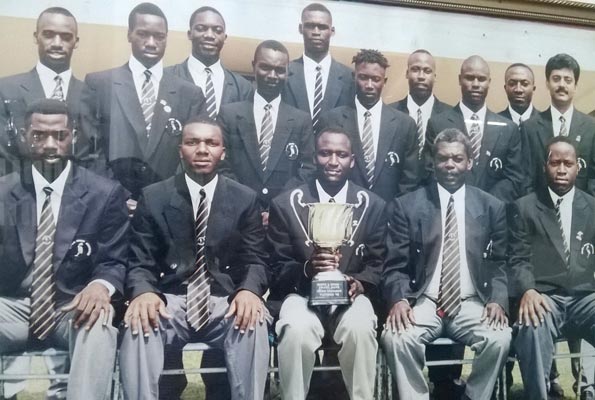
The lowlight was in 1996 during an Africa Zone VI Confederation tournament in Pretoria, South Africa. We were having a net session prior to our first game of the tournament against Zambia, I was bowling and ended up dislocating my shoulder. I was then rushed for medical attention and the Doctor ruled me out of the rest of the tournament before I had even played a game. I ended up being the scorer for the team for the rest of the tournament.
Qn; You have also had a wonderful career off the field as well, how did you manage to reach both heights of work and playing cricket?
Ans; I believe playing organized sports and particularly cricket, was a stepping stone to the success that I have had in my career thus far. Specifically, for me was the Leadership perspective that has given me an edge – since through my cricket playing journey, I captained my High school team from a young age, captained the Uganda U-19 team and also captained my Domestic league clubs – JACC and Wanderers Cricket Club. So the personal and interpersonal skills that come with leading teams on the cricket field also come in handy in a corporate setting.
Qn; A lot of former players categorize you as one of the best players Uganda has produced. Are you flattered by the admiration?
Ans; I do appreciate the compliments from the former players, most of who I played with, that regard me as one of the best players Uganda has produced; and obviously flattered by the admiration. I think the greatest compliment I most often hear from them is the unique ‘cricket-brain’ they say I had as a captain and as a player. Cricket, though you need to have superior technical skills to play it at the highest level, what makes you stand out is the mental strength and agility.
Qn; The jury is out on you for not fulfilling your potential in a generation of amazingly talented players. Do you think you could have given more than you did?
Ans; I do agree with your observations on this and it’s somehow linked to the earlier question you asked me about the balance between playing cricket and having a career. Most of my generation was caught up in this delicate balancing situation as I was. In my case, I recall that due to work commitments there was no time during the day to get in a net session or a workout since I was working in Entebbe in my earlier career life, and had to commute back to Kampala in the evening. Playing competitive cricket when one is out of sorts with regards to the practice and fitness levels required at such a level, wasn’t that appealing to me. I definitely could have given more to stretch out my cricket potential but then Life happened!
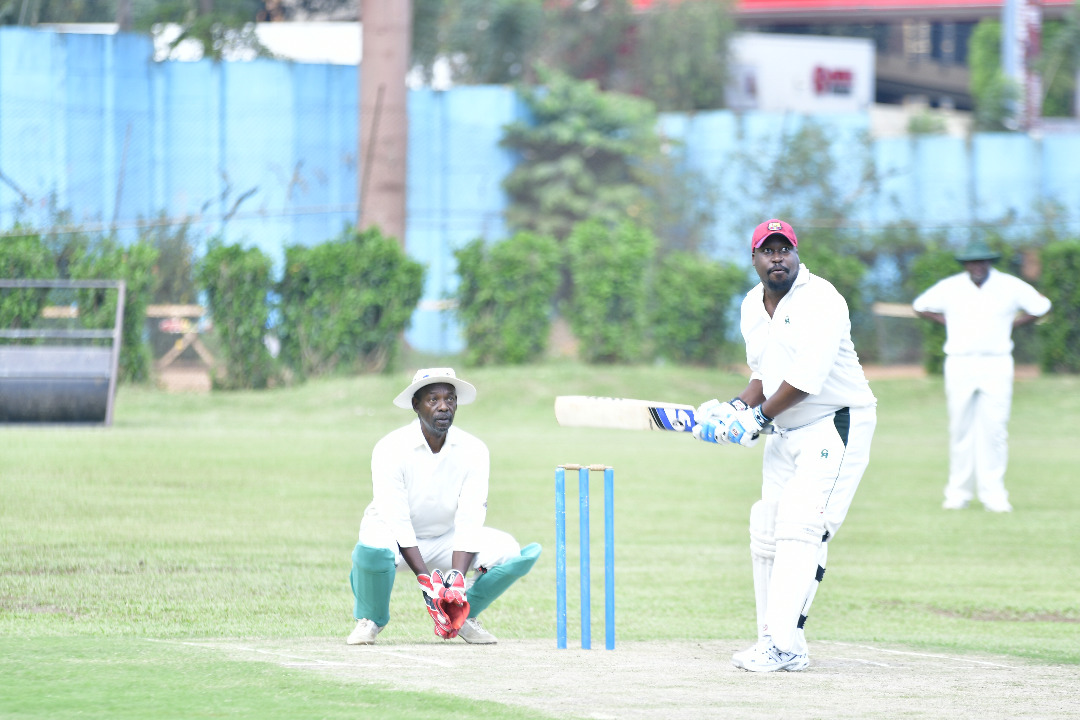
Qn; What do you think Uganda needs to do to at least get ODI status?
Ans; I believe in setting up sustainable cricket structures that involve looking at a medium to long-term horizon, rather than only short-term gains – which are also important for ICC’s continued support. Whether it is through the school system or a regional-based system with development academies where we have cricket playing schools, to have a development agenda of future cricket stars to choose from to represent the country. The bigger and the quality the pool is then it gives us a chance from a sustainability point of view. I was playing cricket at the time Kenya had the most talented crop of players on their national team at the same time [Steve Tikolo, Maurice Odumbe, David Obuya, Kennedy Otieno, Thomas Odoyo, Martin Suji] – they even reached the semi-final of an ICC cricket world cup. After those players retired, Kenyan cricket went on a massive decline as they didn’t have a crop of similarly talented players that had come through the system.
What drives this point home is a story from Richard Mwami when he went on tour as the Manager of the Uganda team and the team didn’t do well. He’s sitting at the bar having a beer and the Manager of the Ireland cricket team comes to console him by joining him for a drink and talking about cricket. And then he asks Richard, “By the way, what cricket structures do you have in Uganda”? He goes on to tell Richard how Ireland had a 10 to 15-year vision to get to where they are as a top Associate cricket nation, supported by structures at different levels.
Qn; Your father is a legend of the game especially in how he helped lots of players back in the day, are you looking at taking up some leadership roles with UCA in the future?
As a way of giving back to the game I absolutely love and that is entrenched in the fabric of my entire being, with some saying it defined who I am today – the short answer is YES. I also continue to support my former club – Wanderers Cricket Club, in whichever way that I can.
Qn; Finally, your best XI with yourself in it.
1.Yona Wapakhabulo (RIP)
2. Nehal Bibodi
3. Guy Kimbowa Lutaaya
4. Benjamin Musoke
5. Sam Walusimbi (Captain)
6. Junior Kwebiha
7. James Komakech (Wicket Keeper)
8. Kenneth Kamyuka
9. Simon Nsubuga
10. Frank ‘Franco’ Nsubuga
11. Henry Osinde
Concussion Substitute: John Lubia
QuickFire Questions (no thinking)
- Favorite Fielding Position? - Mid-wicket
- Best Shot - Square drive
- Inswing or Outswing (as a bowler) - Outswing
- Inswing or Outswing (as a batsman) - Inswing
- 50 over or T20? - 50 over
- Test or 50 over? - Test
- Favorite Batsman - Sir Vivian Richards
- Favorite Bowler - Wasim Akram
- Favorite Cricket Ground - Sir Ali Cricket Club Ground - Nairobi
- Fielding 1st or Batting 1st.- Batting 1st
